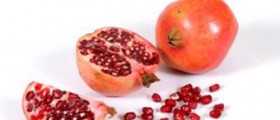
Watermelon can be both the fruit and the plant, and it is considered as one of the most common types of melon. This fruit originates from southern Africa and they were brought to china around the 10th century. The seed has spread from china to the Western Hemisphere, along with the conquering of the New World. Today, the leading commercial growers of watermelon are Russia, China, Turkey, Iran and the United states. Russians are using watermelon for production of a popular wine, but most of the world uses watermelon as a favorite refreshing fruit, especially during the summer when they are sweet and of the best quality. Most of the people eat the juicy flash of the watermelon but seeds and the rind are also edible. This fruit is of great nutritional value and possesses significant health benefits. To get the most of your watermelon, always purchase the organic one.
Nutritional value of watermelon
Watermelon contains high amounts of water. As much as 92% of its weight consists of water. Somewhere around 6% of watermelon consists of sugar and the rest of it are various beneficial nutrients and dietary fiber. The inner white rind of watermelon contains highest concentration of nutrients, but most of the people avoid eating it as it possess unpleasant flavor. Watermelons contain high amounts of amino acid called citrulline, high amounts of beta carotene and significant amounts of lycopene.
One serving of raw watermelon, that contains approximately 100 grams, has just about 30 calories. It is excellent source of vitamin C, very good source of vitamins A and B6, and good source of vitamin B1, potassium and magnesium.
Health benefits of watermelon
As already demonstrated, watermelon contains some of the most powerful antioxidants: vitamin C, A, beta carotene, and lycopene. Antioxidants play special role in humans’ health as they travel around the body neutralizing free radicals. Free radicals are normal side-products of cellular metabolism that are responsible for various health problems, ranging from narrowing of the arteries to cancers.
Watermelon is also an excellent source of the carotenoid, lycopene. Lycopene has been studied on humans and found to be effective against various cancers, such as: prostate cancer, breast cancer, endometrial cancer, lung cancer and colorectal cancers.
As a great source of vitamin B, watermelon is beneficial for energy production. Moreover, scientific studies revealed that eating three or more servings of watermelon per day may lower one’s risk of age related macular degeneration, the primary cause of vision loss in older adults.

















Your thoughts on this
Loading...